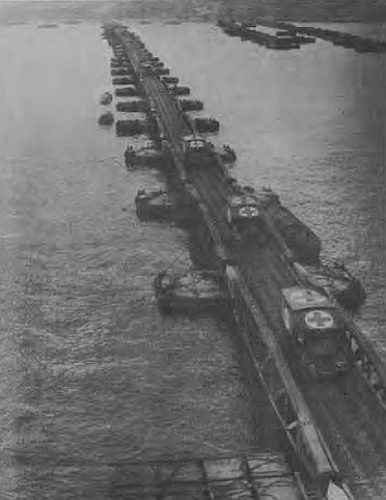- Author
- Smythe, D.H.D., AO, Commodore, RAN
- Subjects
- Biographies and personal histories, History - WW2
- Tags
-
- RAN Ships
- None noted.
- Publication
- March 1975 edition of the Naval Historical Review (all rights reserved)
At 0400 the sky ahead, over Ouistreham and Caen, was being startled into life by glittering, sparkling, corkscrewing tracers, flung at our bombers. There was still, however, no sign of enemy attack from our exposed flank to port and, as darkness turned to grey, we drew ahead of the leading landing craft and stood in towards the Seine Estuary. Splitting apart at the apex of the pear-shaped swept channel, our bombardment force crept down to its firing position, the leaders meeting again at the bottom as we took up our stations for the first shoots.
At 0510, with twilight beginning, each ship was in her place to the minute. Still apparently unseen by the shore batteries, we drifted quietly with our engines stopped, contacting our spotting Spitfires and preparing for the first salvos.

Now it’s 0517, and the eight ships open up on the prearranged battery targets. A slight hitch for us when we fail to contact our aircraft, but we fire away nevertheless with a calculated range at the unseen targets. It is light now, and shells from hidden guns on the Havre and Deauville hills to port begin to fall amongst us, but only in such small numbers as to make it obvious that the RAF have done a good job. The landing craft are coming up astern now, creeping towards the beaches. But first must come the beachdrenching, and the destroyers slide inshore to begin the devastation. Now their guns add to the increasing crescendo of noise, as they blast away at the shoreline. Next come the daylight precision bombers, and as they calmly and with calculated perfection smother the foreshore with their bombs, I see for the first time just what precision bombing means, and momentarily feel sorry for the Huns. Meanwhile, the Rocket LCTs are closing the beach, and an astonishing spectacle is revealed to us as they open up with their hundreds of flaming rockets, pouring death into the houses along the beach. In answer to them the flak from the shore intensifies, and smoke pours forth, not only from the burning buildings ashore, but also from several of our craft. But the Germans still seem dazed, their air force has not put in a single appearance, and my impression is that it’s all too good to last. It can’t be true that we have really surprised them or, if we have, surely in a matter of minutes the Luftwaffe will be screaming down on us. But no, it is now five minutes before H hour, and as our initial assault craft close the shore, following the channels blasted for them through the underwater obstacles, the resistance is still slight. The bombing has stopped, the bombardment behind the beaches has been lifted and as our watches show 0725 to the second the barges touch down all along the coast as far as the eye can see to the westward and the infantry, the tanks, the Bren gun carriers and the mobile guns stream up the beaches. The Allied Expeditionary Force of Liberation has landed in Europe!
From H hour onwards the landing devolved into a series of waves of further soldiery and equipment being put ashore from landing craft, which were all the time coming in from seaward. As the army landed, so it disappeared from our view into the rows of houses, fast becoming rubble, forming the frontage of Ouistreham. From our position we could not hear the gunfire from shore above our own salvos, but from the flying incendiaries, the sharp bursts of black-smoke explosions, and the powdery disintegration of one building after another, it was obvious that fierce attempts were being made by the Germans to frustrate our advance. It was at about this stage that, following an urgent call for fire from a unit ashore, we carried out an impromptu indirect bombardment of a position held by the Germans just inland from Ouistreham itself. We had just bracketed the target (a stubborn gun position, we heard later) when the Spitfire who was spotting for us went suddenly off the air. Poor chap, it seems pretty certain that he must have been shot down. (Later we heard that he had indeed been, but that the pilot was safe). Anyway, nothing daunted, we went ahead, firing for effect with rapid fire and the army was then able to push on.
